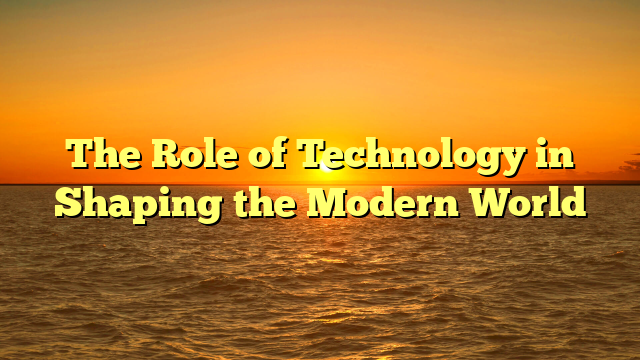Technology has become one of the most influential forces in human history, driving change at a pace faster than ever before. From the invention of the printing press centuries indo168 ago to the rise of artificial intelligence today, every technological leap has reshaped the way people live, work, and communicate. In the modern era, technology is not just a tool—it has become an integral part of human identity and culture.
One of the most significant impacts of technology is on communication. The world has moved from handwritten letters to instant messaging and video calls that connect people across continents in real time. Social media platforms, for instance, have given individuals the power to share their thoughts with global audiences. This transformation has broken down barriers of distance and time, making it easier for cultures, ideas, and innovations to spread. However, it also raises concerns about privacy, misinformation, and the pressure of maintaining a digital presence.
In the workplace, technology has fundamentally altered the way businesses operate. Automation and artificial intelligence are streamlining tasks that were once time-consuming, allowing companies to achieve greater efficiency. Remote working tools, cloud computing, and project management software have enabled employees to collaborate from anywhere in the world. While these advancements offer flexibility and productivity, they also demand new skills and adaptability from workers. As traditional jobs evolve or disappear, lifelong learning becomes essential to remain relevant in a tech-driven economy.
Healthcare is another field transformed by technology. Innovations such as telemedicine, wearable devices, and advanced diagnostic tools have improved access to healthcare and increased life expectancy. Doctors can now monitor patients remotely, artificial intelligence can assist in analyzing medical data, and robotic surgeries offer precision beyond human capability. Yet, these improvements also bring challenges related to data security, ethical use of technology, and ensuring equal access for all communities.
Education has equally benefited from technological progress. Online learning platforms, virtual classrooms, and digital resources provide opportunities for students who might otherwise lack access to quality education. Technology has democratized knowledge by making it available at the click of a button. However, the digital divide still exists, highlighting the need to ensure that students in less developed regions are not left behind.
Despite the many benefits, society must also confront the challenges technology introduces. Cybersecurity threats, job displacement, and the overreliance on digital systems can pose risks. Balancing innovation with responsibility is critical. Governments, companies, and individuals must work together to establish ethical standards and policies that ensure technology serves humanity positively.
Looking ahead, emerging fields such as artificial intelligence, biotechnology, renewable energy, and space exploration hold immense promise. These innovations could solve pressing global issues like climate change, disease, and resource scarcity. At the same time, they require careful oversight to prevent misuse. The future of technology is not predetermined; it depends on how society chooses to harness it.
In conclusion, technology is both a gift and a challenge. It provides incredible opportunities to improve human life, but it also demands thoughtful use and regulation. The modern world is shaped by technology at every level, from personal communication to global governance. The responsibility lies with humanity to guide this force in ways that foster progress, equality, and sustainability.
